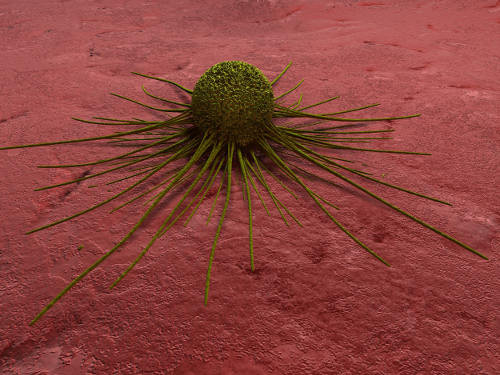Using AI to control energy for indoor agriculture
30 September 2024
Published online 23 July 2018
A new approach marks step forward in efforts to suppress cancer cell generation.

© Getty Images/iStockphoto / Thinkstock
The malaria drug, according to the team at Weill-Cornell Medicine in Qatar, could improve the effectiveness of a new class of cancer therapies called glutaminase inhibitors, if used in combination.
“The main breakthrough is beyond the discovery of more efficient cancer treatments by combination with malaria drug, but in the way which we analyze the data and design the treatment,” says Anna Halama, first author of the Cancer Letters paper1 describing the discovery.
Halama used a research approach called rational metabolic engineering that she invented with a colleague.
The ultimate goal in cancer treatment is the death of the cancer cell. While some cancer cells may die, many just go to sleep. Treatments of cancer have, so far, been effective in inhibiting the production of the amino acid, glutamine, by which the cancer cells create energy. While these inhibitors slow cells’ growth to a crawl, they can’t kill them.
Halama says that metabolic engineering, her new research approach, can help researchers scrutinize the compensatory pathways that cells create after their primary energy source, glutamine, is muffled. Metabolic engineering allows them to observe other pathways that cells find to generate energy.
Compared to normal cells, cancer cells have different requirements in the way they utilize metabolites, which are small molecules such as sugars, amino acids and fatty acids. Metabolic engineering, according to Halama and her colleagues, enables them to identify the metabolic composition in different cells, and in turn give them insights into how the cell generates energy.
“Glutaminolysis inhibition lead to [the] activation of lipid catabolism and autophagy, which both could serve as sources for energy and let cancer survive,” says Halama.
This technology is reportedly paving the way for the researchers to build a much wider database of information that can be used to better understand cancer cells’ survival mechanism.
As the malaria drug is a known autophagy inhibitor, the researchers used it with the glutamine inhibitor and they observed “accelerated cancer cell death.”
With the information gleaned using this approach, Halama says the study “has a high potential to be translated into the clinical practice. The next step will be to investigate our strategy in a clinical trial.”
doi:10.1038/nmiddleeast.2018.80
Stay connected: